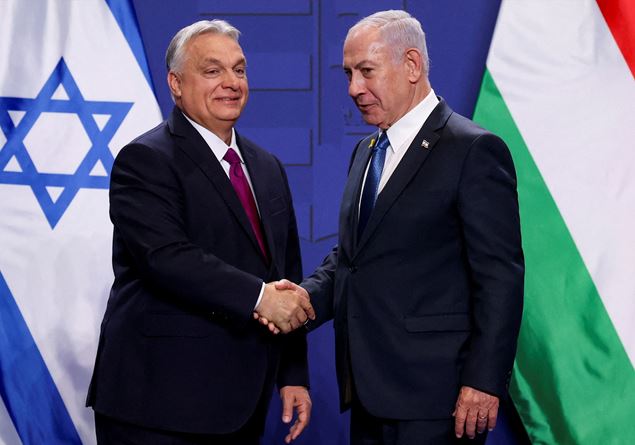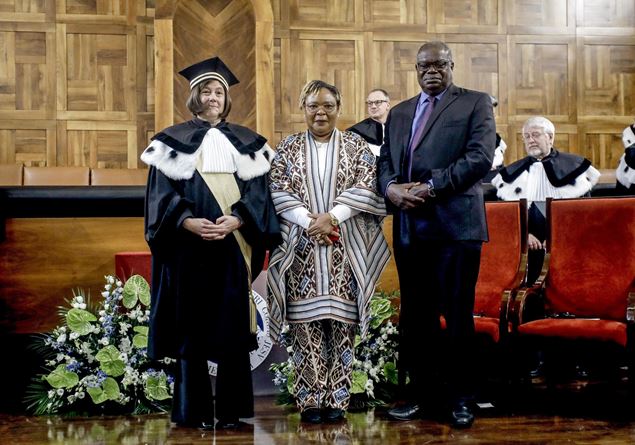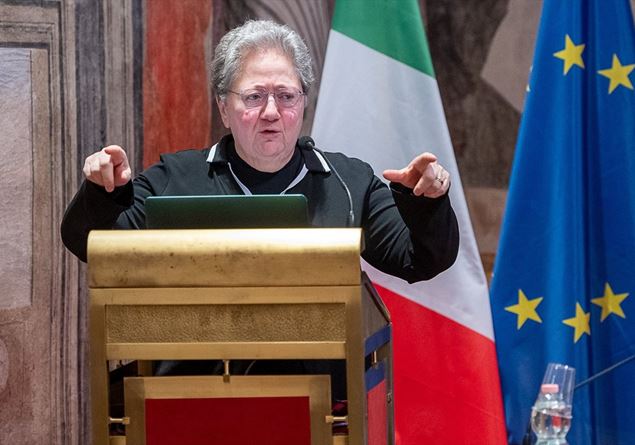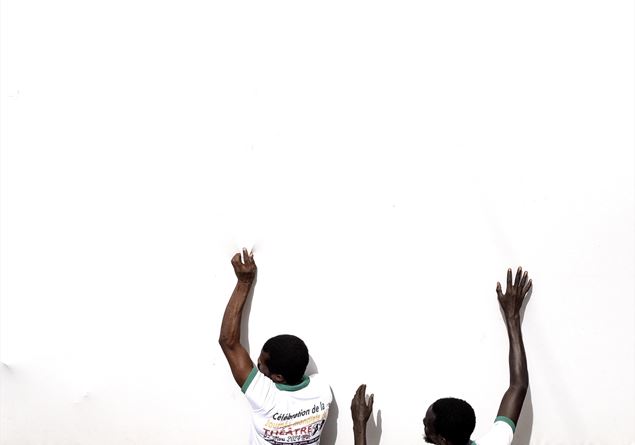The 2011 Nobel Peace Prize Leymah Gbowee who with her women’s movement gave a decisive impulse to the end of the second civil war in Liberia, and the economist from the University of Ghana Ernest Aryeetey, former Secretary General of the African Research Universities Alliance are the two guests of honour. The “Africa Plan” at the center of the University’s activities to bring the (forgotten) African continent to the heart of educational, research and mission projects.
Africa is the central theme of theinauguration of the academic year of the Catholic University of the Sacred Heart, the first for the rector Elena Beccalli, elected last May, who at the beginning of her speech recalls her predecessor Franco Anelli who “for over a decade”, he underlines, “has worked in such a way as to consolidate the prestige of the University and strengthen its internal and international projection”.
Listening to her in the front row of the Aula Magna of the Largo Gemelli headquarters are the Minister of Education, University and Research Annamaria Bernini and the cardinal Peter Turkson, president of the Pontifical Academy of Sciences. Also present Mario Monti and Letizia Moratti. On stage, the archbishop of Milan, Mario Delpini, president of the Toniolo Institute, the founding body of the Cattolica, who before the ceremony in the Aula Magna celebrated Mass in the Basilica of Sant’Ambrogio for the entire university community. In the homily, taking inspiration from the evangelical passage read just before, the call of the apostle Matthew, he drew attention to the risks – also present in the Catholic world – of a “sitting culture”, who «visits its history as if it were a museum, without letting itself be influenced by the thrill, the ardor, the temerity of the paths. A seated culture, that is, inclined to avoid disturbing questions, hesitant and embarrassed in professing its originality, shy in proposing itselfso respectful of clichés and political correctness as to be irrelevant.”
After the traditional procession of the Academic Senate, the first to speak in the Aula Magna is the rector Elena Beccalli: «In the academic year 2024/25, there are 45,441 students enrolled, of which 13,596 are new ones enrolled in degree courses, marking an increase in master’s degrees», he states, «the University’s support for the right to study to make quality paths accessible to all: sOnly in 2022/23, the investment intended for economic benefits and scholarships was 22.3 million euros».
Beccalli then focuses on the University’s mission in the coming years: «The Catholic University of the Sacred Heart must be the best university For the world, not simply the best university of world. In other words, a University at the service of the world. Knowing how to continuously question oneself on radical issues requires the ability to formulate meaningful questions that look to the future – without limiting oneself to giving answers to yesterday’s issues – and to confront the dominant paradigms to propose a new vision”.
A mission that must be accomplished by drawing inspiration from three lines of thought and action that the rector summarizes thus: «Serve knowledge with a long and integral look to develop new paradigms, bring disciplines into dialogue to avoid falling into fragmentation, educate women and men of value to teach them to recognize the truth».
The rector quotes the founder, father Agostino Gemelli, to define the profound identity of the University, which is that of being, he explains, a «research university, called to propose adequate study and research models according to the specificities of each discipline, with a spirit that is, at the same time, free and oriented towards the search for truth. This is how”, he continues, “that the university can offer a contribution of thought to the fundamental issues of every era, also through synergistic actions made possible by a network of strategic alliances with bodies and institutions. Precisely in the perspective of strategic alliances, we welcome – and extend to other universities – the appeal formulated by Pope Francis in the recent Message for the World Day of Peace to outline “new architectures”, starting from the financial one, to promote cultural and structural changes».
The rector then recalls the alarming data on the educational emergency and inequalities in access to education and focuses on the issue of artificial intelligence, «whose ambivalent nature», she underlines, «has even been recognized by Geoffrey Hinton, Nobel Prize in Physics for his discoveries on artificial neural networks. An ambivalence that must be addressed starting from the anthropological question, seen in relation to the so-called technocratic paradigm. The latter leads us to consider reality, good and truth as spontaneous outcomes of technology, so much so that it leads to the denial of the human itself. There are many risks that arise from this. First of all, the capacity of action of artificial devices which sometimes leads to a real voluntary, perhaps unconscious, servitude on the part of users. Secondly, the impact of machines on the way we think and make decisions, such as to determine a new cognitive system, in addition to the analytical and intuitive ones. Finally, the delicate aspect of the autonomy of algorithms, which introduces the issue of attributing responsibility for their choices.”
Precisely starting from the urgency of this topic Beccalli proposes a Educational pact for new technologies and artificial intelligencewhich he describes as «an overview and strategic alliances whose premise is that education can benefit from new technologies when they act as mediators, without them becoming an end in themselves».
In the last part of her speech, the rector focuses on the Africa Plan, which will also be at the center of Dies Academici of the other University locations scheduled in the coming weeks (in Rome on 6 February, in Brescia on 4 March and in Piacenza on 13 March): «The Plan is a structure of action, in coherence with the opening direction of the University, which aims to place the African continent at the heart of educational, research and third mission projects. In a spirit of reciprocity, the University intends to expand the paths for the training of young Africans locally or in our country, to become an educational hub for young second-generation Africans living in Europeoften on the margins, despite representing an important part of our future, as well as making curricular volunteering experiences for our students increasingly systematic. The aspiration is to become the European University with the most significant presence in Africa, through partnerships with local universities and institutions, with a view to mutual enrichment, for the integral training of people and the promotion of brotherhood and, last but not least, of peaceful social coexistence”.
The perspective of this Plan, specifies Beccalli, «is based oneducation power, Meaning what on the ability to help a country through incisive and respectful educational plans. Education, in fact, is the tool that more and better than others allows us to work with African countries rather than for African countries, moving from one approach top down to one bottom-up in which they also participate in defining problems and proposing solutions. From this point of view, the combination of education and growth, accompanied by solidarity, is the key to integral and supportive development, including in the Global South. A perspective whose relevance is well understood today, in the development and implementation phase of the Mattei Plan for Africa, with whom we hope to create fruitful connections.”
Cattolica’s Africa Plan, concludes Beccalli, «intends to continue in the wake of this tradition by consolidating studies and educational projects – in fact we have already 123 active projects with 40 African countries – the result of continuous and fruitful collaboration, agreements and alliances with universities, institutions, businesses and local communities. A virtuous example is undoubtedly the University’s project with the E4Impact Foundation, which over time has trained more than 1,700 entrepreneurs with MBA programs in 20 African countries with local universities. The commitment we make is to continue and strengthen initiatives with Africa in close synergy with the entities that already operate there, from the Catholic ones to those internationally recognized such as UNESCO and FAO”.
After the rector, the speech of the archbishop of Milan and president of the Toniolo Institute, Mario Delpiniwho in his greeting reiterated what the mission of the University of Italian Catholics is, pronouncing an invective against banality which, Delpini underlines, «it is the outcome of knowledge that is reduced to the collection of equipment“, While «the Catholic University contrasts banality, the reduction of knowledge to equipment because it proposes to understand knowledge as a factor of wisdom, which contemplates, interprets, uses and critically rethinks the use and does not give up dreaming. Banality”, he continues, “is the result of that way of studying the past which reduces memory to erudition, the boring accumulation of enormous deposits of antiques and the Catholic University contrasts banality because it proposes the study of the past as a form of spiritual experience of brotherhood between generations, as a form of recognition and gratitude, as a memory that prevents us from settling on the present and ignoring its roots”. The Catholic University, reiterates Delpini, «it contrasts banality because it presents itself as a university, that is, as a meeting place for knowledge and as a favorable context for the search for truth, that is, not only for specialization on the particular, but also on the question of the meaning of specialization and of the particular».
During her speech, Leymah Gbowee recounted her experience in Liberia where, with her women’s movement, she fought for the end of the war and access to education for girls. Then, on the sidelines of the ceremony, he recognized that the Africa Plan «it’s a great initiative. I also encourage seeing this partnership as a situation of mutual respect, both sides of the world have skills that should be appreciated. Therefore a commitment in a spirit of collective humanity, and by this I mean that each person has their own talent and gifts and it is necessary to leverage this individual talent – he added -. At the core of all this there must be respect for human dignity.”
The Nobel Prize winner highlighted the days “when Africa was considered a continent where skills and experiences were simply exported”. «I also lived in Africa for the entire period of my education, so I didn’t study abroad. I can guarantee that there is as much expertise and knowledge in Africa as in the rest of the world – he concluded -, the university will certainly benefit from this exchange of knowledge and from Africa and with Africa”. Gbowee also commented on the agreement on the truce between the government of Israel and Hamas for the truce in Gaza: «We must have hope that this agreement can last over time. I am happy that an agreement has finally been reached because the Palestinians badly needed it – he added -. I am part of the organization of women who have won the Nobel Prize and we were the first to define what is happening in Gaza as a genocide. A step forward has been taken and I hope that this – he concluded – will also lead to a situation that allows the Palestinians to rebuild their lives”.
After Gbowee’s speech, Professor Aryeetey focused on the problem of youth unemployment on the African continent, the result of lack of access to education and educational disparities between men and women.










